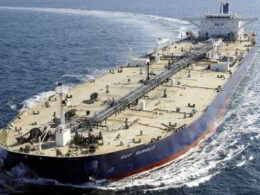The United States is blocking European efforts to cut the G7 price cap on Russian oil from $60 to $45 per barrel, frustrating EU and UK attempts to ramp up pressure on Moscow’s war financing, Bloomberg reports.
The EU and UK could consider lowering the cap without the US, according to one of Bloomberg’s sources. The US, however, is not shifting its stance on the oil cap despite calls from the European Union and the UK to lower the limit. The proposal, aimed at reducing Russian oil revenues used to sustain its war against Ukraine, faces US resistance just ahead of the Group of Seven summit in Canada.
Trump again blames both Ukraine and Russia for failing to reach a peace deal
People familiar with the matter told Bloomberg that the final decision on any change rests with President Donald Trump. However, those sources said there has been no indication of flexibility from Washington since the US position was set during a G7 finance ministers’ meeting earlier this year.
Europe’s proposal forms part of latest sanctions package
The push to reduce the cap to $45 per barrel is part of the EU’s new sanctions package against Russia. The measure is intended to limit Russia’s capacity to fund its ongoing invasion of Ukraine by cutting deeper into its oil profits.
Given that most Russian oil shipments pass near European waters, unilateral European action could still have some impact. However, officials acknowledge that a coordinated G7 effort involving the US would be significantly more effective, largely because of US enforcement capabilities.
Oil prices, which had fallen below the $60 G7 ceiling, surged following Israeli strikes on Iran.
Israel’s attack on Iran may have revived Moscow’s oil revenues for war
The current $60 per barrel cap was originally introduced by the G-7 as part of broader sanctions designed to curb Russian revenue while maintaining global supply. Enforcement of this cap relies heavily on G7 members, especially the US, which has extensive influence over global shipping and insurance mechanisms.





